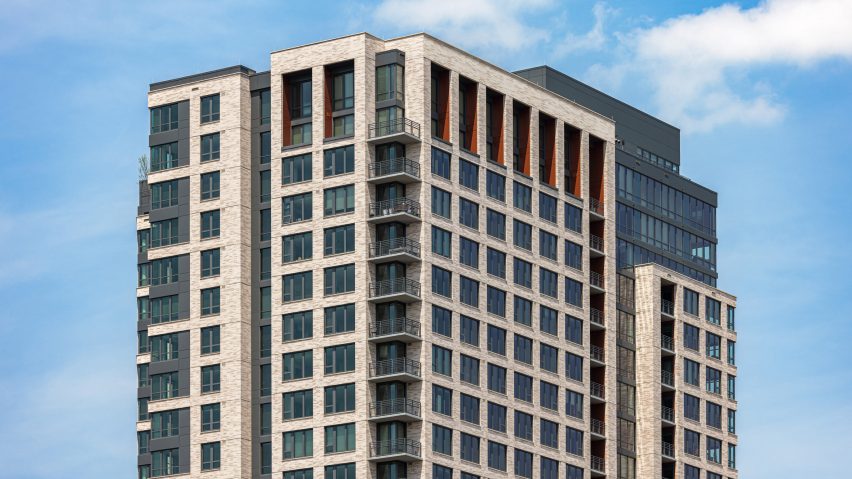
High contrast brick by Glen-Gery helps blend Maryland high rise into skyline
Promotion: US firm Design Collective has developed a 27-storey mixed-use tower in Silver Spring, Maryland, which is clad in custom-coloured bricks by material manufacturer Glen-Gery.
Solaire 8200 Dixon is the tallest tower in Silver Spring, a northern suburb of Washington, DC. It consists of 403 residential units, amenity spaces, a food hall and four levels of above-grade parking.
Occupying a non-rectilinear site, it connects its residents to the city's Metro, Metropolitan Branch Trail and the surrounding pedestrian and transportation network of downtown Silver Spring.
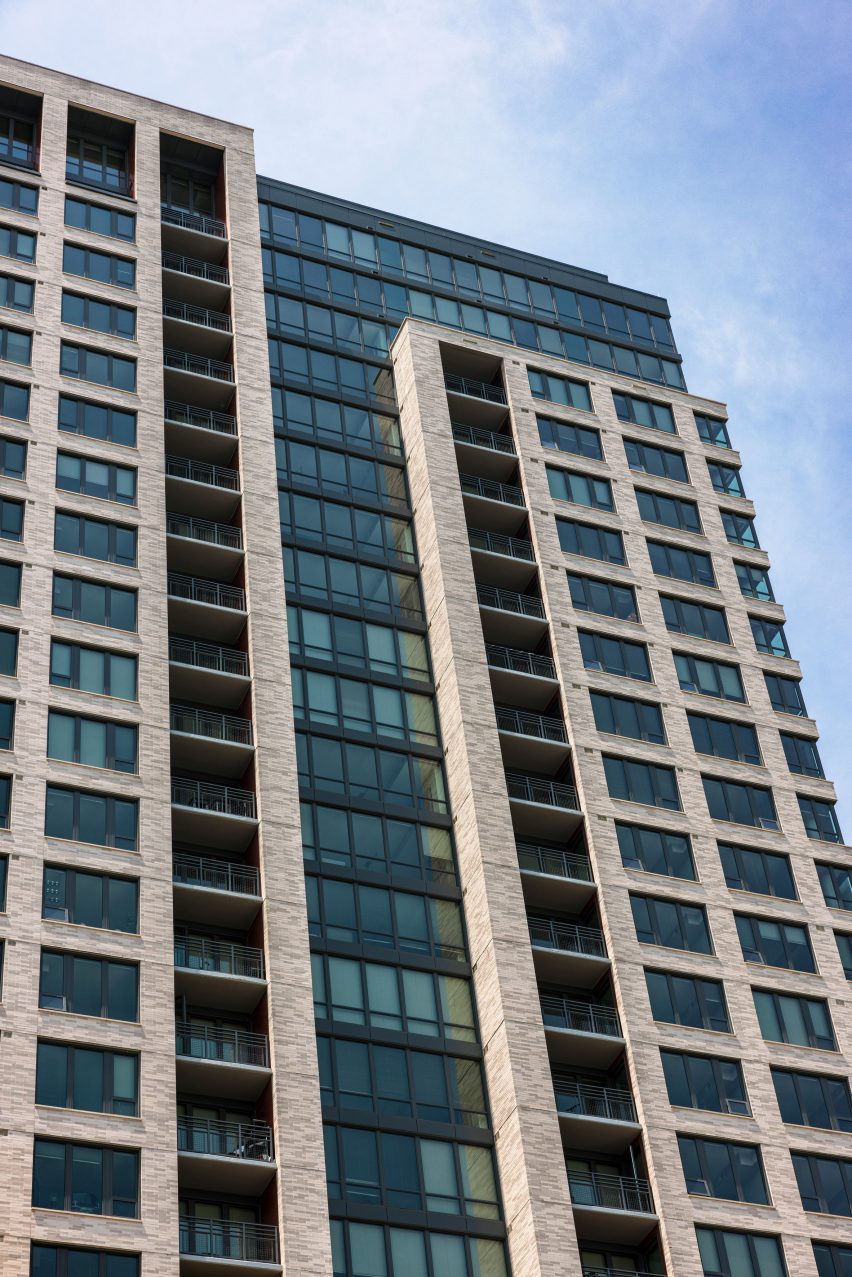
"The building has many different frontages and not really a true back, which is a huge design challenge," said architect at Design Collective, Alyse Talbott. "Each side needs to be looked at from all different angles and all different approaches."
"With a 27-storey building, you really do need to do things to bring it back to a human scale," she continued. "A lot of times we focus on the first 20 feet, that’s what you're going to be experiencing when you walk along the street."
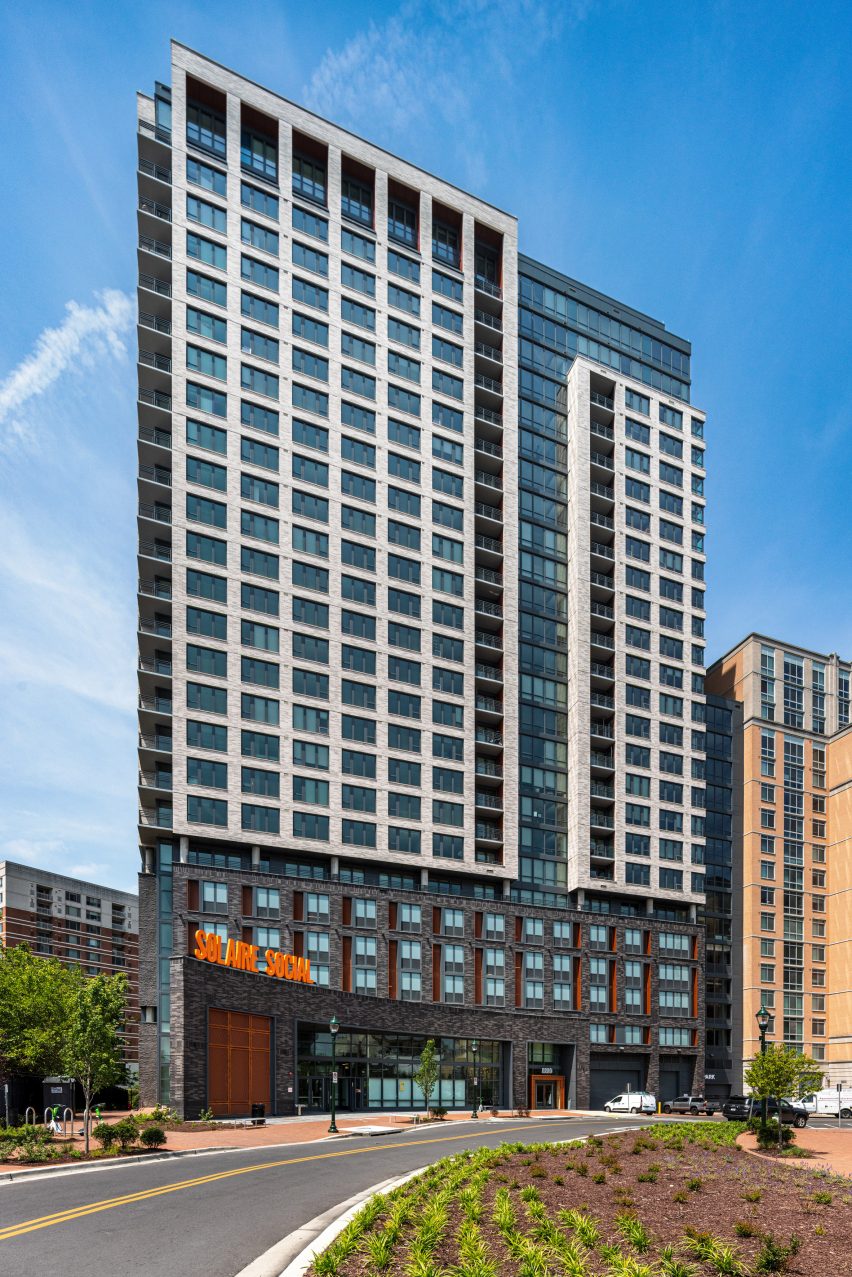
The building's curved entry sequence along Dixon Avenue features a deep overhang that houses the Food Hall entrance and outdoor dining.
To clad the building, the architects specified Glen-Gery's matte Klaycoat bricks in Norman size and used six different custom colours to create a more intimate scale at street level and make the tower blend into the skyline.
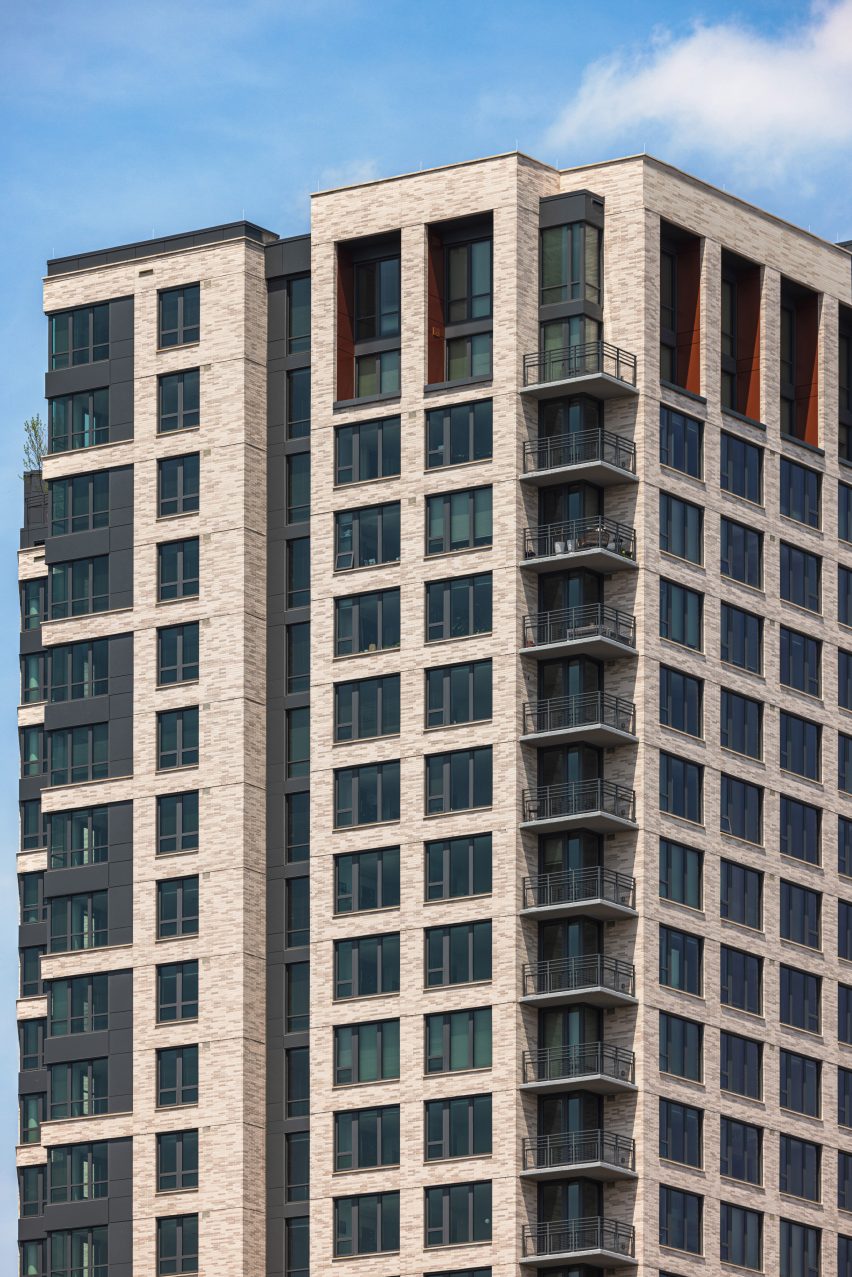
A custom trio of dark grey shades were chosen for the building's podium and a palette of three light grey shades for the rest of the tower.
"We wanted two brick palettes and we wanted there to be a high contrast between the two," said Talbott.
"We went with the darker Klaycoat blend for the base and that really grounded the building and made it feel of the earth, and then for the upper storeys, to lighten the rest of the high rise, we wanted a lighter brick blend."
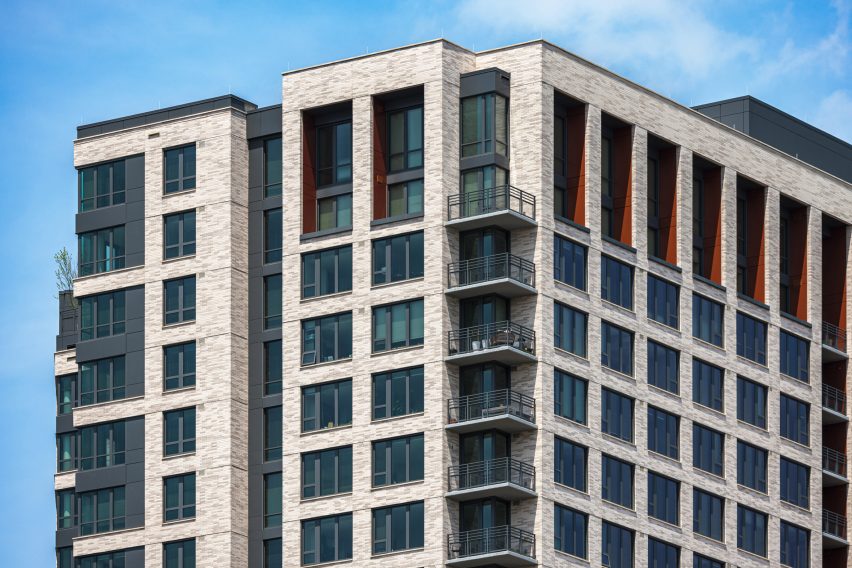
Glen-Gery's breathable Klaycoat bricks are coated with "liquid clay" that comes in 20 colour variations and nearly unlimited custom colours. The coating is applied to the unfired brick body and fused to it during firing.
Unlike a glaze, which is typically impervious, the Klaycoat surface coating allows water vapour to pass through the face of the brick without damaging the surface.
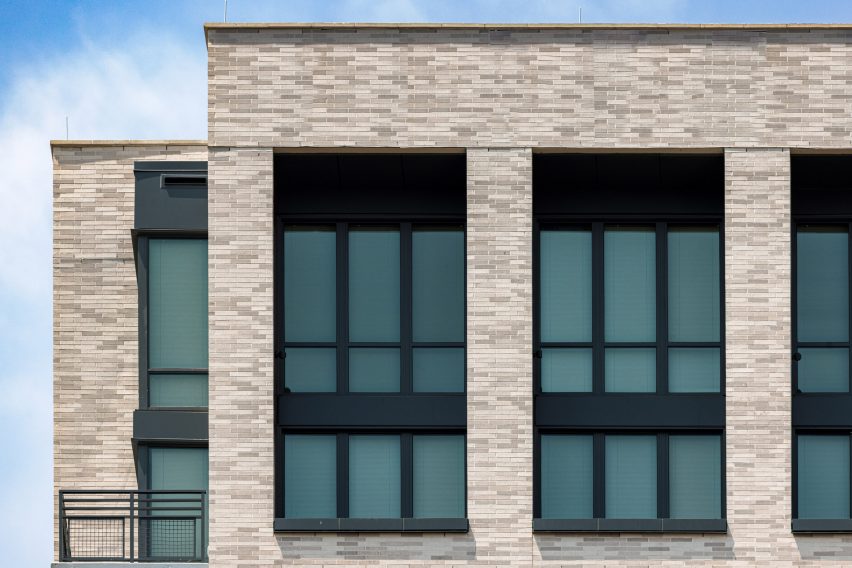
Over 350,000 bricks in over 11,000 shapes are used to clad the building with accents of orange metal strategically placed throughout.
"We were drawn to brick for this project because of its human qualities – its tactile qualities," explained Talbott. "It has so much character to it and maybe part of that is because it's actually from the earth. You can't recreate that."
Another project that recently utilised Glen-Gery bricks is a conference centre on a verdant site in Iowa designed by US studio Substance Architecture. Named Tree Huis, the 650-square-metre building in Marion County is adorned with Ebonite Velour bricks laid in a horizontal arrangement and chosen for a timeless appearance.
Glen-Gery bricks were also used for Grand Mulberry in New York designed by US architect Morris Adjmi. The bricks were hand-moulded in order to create their unique patterns and shapes, which were developed specifically for the project.
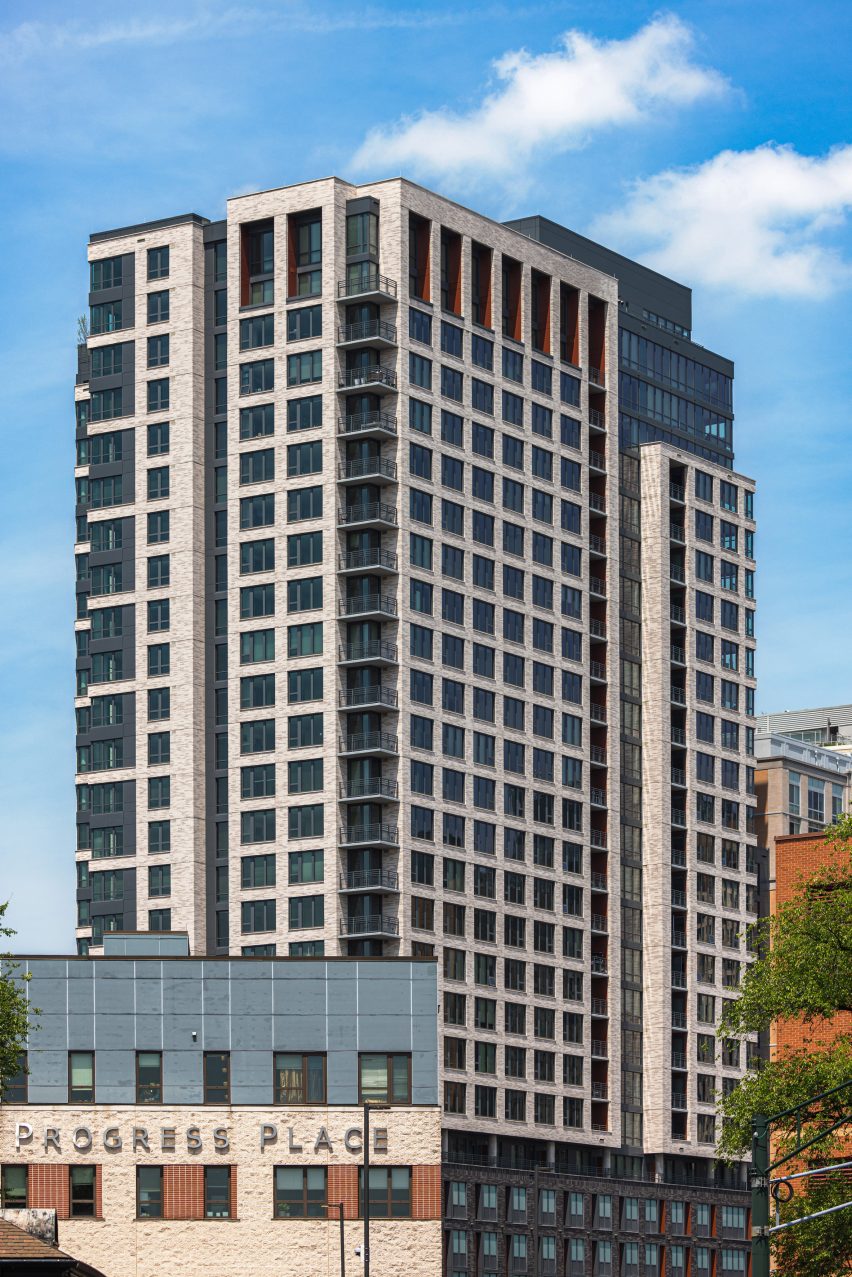
The brand's Black Roman Maximus bricks were also chosen as cladding for a New Jersey residence designed by Brooklyn-based architecture firm Studio PHH, named La Clairiere.
The house is located in Princeton, New Jersey, and is made up of two brick-clad volumes that are connected by a glass central void containing communal areas.
To find out more about Glen-Gery, visit its website.
Partnership content
This article was written by Dezeen for Glen-Gery as part of a partnership. Find out more about Dezeen partnership content here.